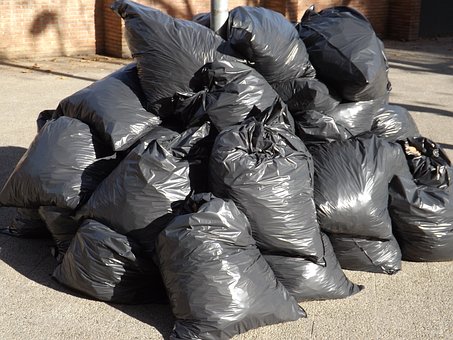Welcome to KDS Environmental
Reliability
100%
Affordability
100%
Professionalism
100%
Reputation
100%
 It is clear that the quantity of household waste produced is increasing every year at an alarming rate, and government are under pressure to broaden existing landfills or build new ones to accommodate the waste that is being produced.
It is clear that the quantity of household waste produced is increasing every year at an alarming rate, and government are under pressure to broaden existing landfills or build new ones to accommodate the waste that is being produced.
What is Hazardous Household Waste?
Household waste is leftover from household products. Dangerous household waste are household products which contain chemicals that have the potential to affect plants, the health of humans and animals and are destructive to the environment when managed incorrectly
Inappropriate management of household waste has the potential to be extremely destructive to the environment, people, and animals. What many of us may not recognize is that many of those common household products contain destructive, harmful, or flammable chemicals that can be dangerous to the environment if not dealt with or managed appropriately.
Dangerous household waste should not be gotten rid of in the same way as regular waste. For instance, gas can be buried in the ground, can affect rivers, and find its way into drinking water. The hydrocarbons in motor oils or pesticides have the potential to bio-accumulate in freshwater fishes and can find its way in the food chain. Burning hazardous waste causes the release of harmful chemicals and fumes in the air. When released into the environment, these chemicals are distributed over large locations, therefore impacting the health of persons over a wider area.
Some of these chemicals stay in the systems of plants and animals for a long period of time and may go into the food chain when the impacted plants and animals are consumed.
 Bioaccumulation of dangerous substances in the systems of plants, animals, and humans has the potential to affect their reproductive lives, development, hinder the function of numerous organs such as the liver and kidneys, affect the functioning of the central nervous systems and body immune systems of human and animals and some have been listed as known carcinogens.
Bioaccumulation of dangerous substances in the systems of plants, animals, and humans has the potential to affect their reproductive lives, development, hinder the function of numerous organs such as the liver and kidneys, affect the functioning of the central nervous systems and body immune systems of human and animals and some have been listed as known carcinogens.
How Can You Tell a Product is Hazardous?
Read the labels of products. In Nolte and other parts of the country, labels are required for all products. These should provide information on the constituents of the products, including signs and words, to suggest the risk to animals, humans, and the environment if mishandled.
How To Tell If Products Are Hazardous?
Always check out the label of products in your household and make it a practice of reading the labels of a product before making the decision to buy them.
What Can You Do to Manage Contaminated Materials?
Purchase Environmentally Friendly Products – Experts agree that the best way to manage waste is to not produce it in the first place. You can begin by avoiding the purchase of products that contain chemicals that are harmful to humans, animals, and the environment. Purchase those products that are biodegradable or friendly to the environment.
Safe Product Storage – Ensure that dangerous products are kept in a safe place, that their containers are not harmed, do not have any leakages to reduce the threat of contaminating water sources, land, humans, animals, plants, and the environment. Ensure that destructive products like acids are kept in different locations from other dangerous products.
Check products frequently to ensure that there are no leakages and broken lids or bulging sides.
Always store products in their original containers to avoid unintended use.
Ensure that these products are kept in a place where children and animals have no access to them.
Disposal of Products – Disposal of products should always be the last hope. Why? Since there are no safe ways of disposing of hazardous waste. You can avoid the dilemma of hazardous waste disposal by either choosing biodegradable products, recycling the product, giving the excess products to friends, next-door neighbors, or family or acquiring smaller volumes of the product.
 If, however, disposal is inevitable, then you should get rid of the waste in the manner prescribed on the label.
If, however, disposal is inevitable, then you should get rid of the waste in the manner prescribed on the label.
Although there are laws to control the handling and use of large amounts of hazardous waste, the existence of laws to control the typical small quantities generated at the household is non-existent. For this reason, the responsibility for the management of hazardous waste falls directly on the shoulders of the hazardous waste generators.
Protection of the environment can only take place when you contribute in finding innovative ways to re-use, recycle, or reduce waste. This is vital if we are to safeguard the environment and health of future generations. Bear In Mind That Waste Management is Your Business, My Business, Our Business.
if you are in Nolte or Morrison Falls, McQueeney, Zipp, Muehlsville, Hilda Siding, Seguin, Schumannsville, Marion, Lauback, Camp Willow, call us now!
We are experts in environmental clean-up, and we can help you with eradicating dangerous items in your home. Our number one goal is to ensure that the environment is safe for everyone to live in, and your health is protected. Get in touch with us today and get a free, no-obligation quote.
We are the best eco-friendly company you can trust in Morrison Falls, McQueeney, Zipp, Muehlsville, Hilda Siding, Seguin, Schumannsville, Marion, Lauback, Camp Willow and Nolte.